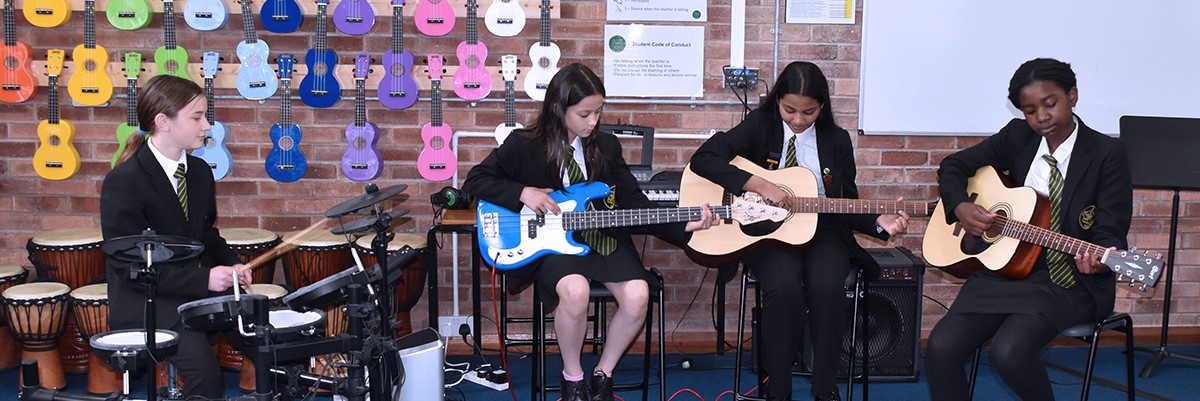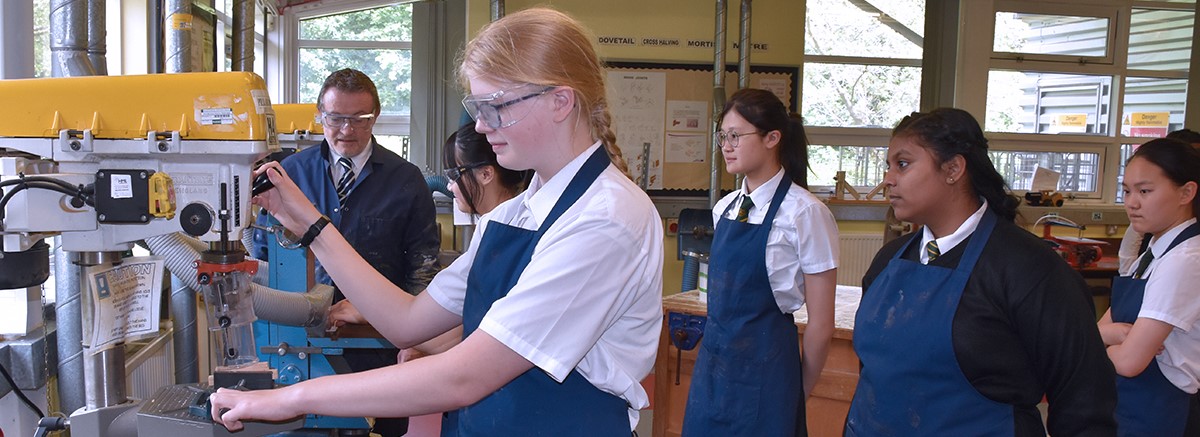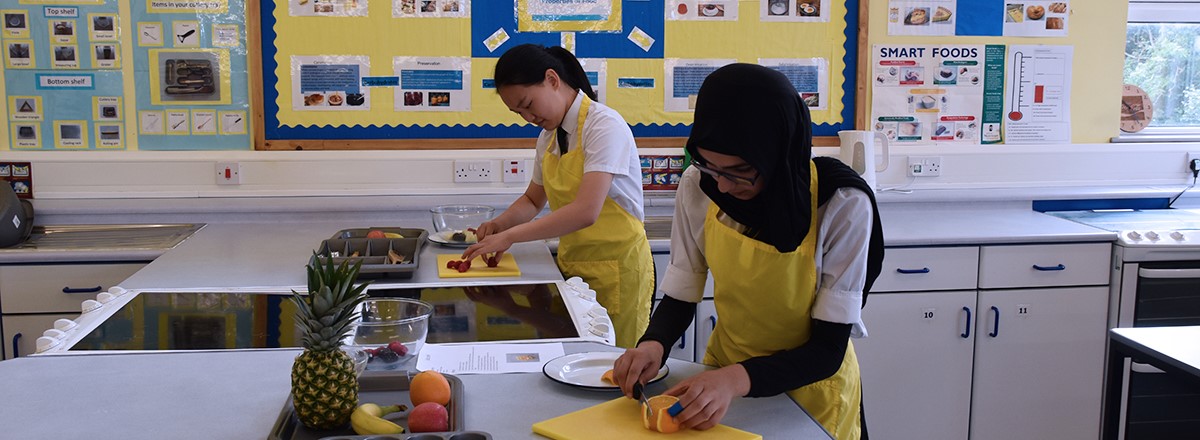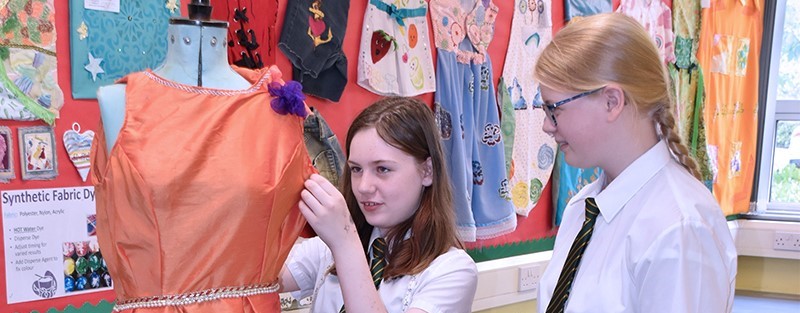Drama
KEY STAGE 3 CURRICULUM
The Drama curriculum has been designed to develop transferable and subject specific skills to broaden student’s awareness of the benefits of the Performing Arts. Students learn how to create, respond, perform and evaluate Drama through written and verbal reflections. Students will gain subject specific terminology about design and acting elements of Drama and be able to use this effectively when communicating verbally, through written tasks and practically.
We aim to broaden student’s cultural awareness by sharing theatre performances online as well as taking students to the theatre to watch live performances. Students will look at multiple plays throughout their Drama journey exploring different themes, intents, characters, and genres allowing for students to reflect on how it made them feel, gaining empathy and reflection on situations.
We want students to develop empathy and consideration through characterisation and the feeling of putting themselves in someone else’s ‘shoes’. Another way we will do this is by students working in different size groups and with different people in the class, again developing transferable skills that will support our students in other subjects and beyond their school lives.
Year 7
|
Unit 1: Introduction to Drama By the end of the first module, students should have developed their drama skills in preparation for their first performance. Whilst understanding and applying their theatrical skills is the primary objective of this project, they should also be able to understand how these skills create meaning on stage and be able to analyse and evaluate their performance work and the work of others.
|
|
Unit 2 ‘Scripted Drama’ Students will study a play with the main focus of each lesson building on their skills and knowledge of performance skills. Last unit students were able to identify skills and apply them to a short scene. To enable students to increase their performance ability students will be expected to identify areas of strength and development for both themselves and their peers. Whilst applying their theatrical skills is the primary objective of this unit of work, students are expected to understand how these skills create meaning on stage. · Cognitive memory – learning lines · Application of vocal and physical skills · Characterisation · Stage Presence |
Year 8
|
Unit 1 ‘Scripted Drama’ Students will study the play ‘DNA’ by Dennis Kelly. Students will explore plot, characterisation, as well as set and costume design. Each lesson will build on developing skills and knowledge of drama, leading to a final performance of a selected scene. Students will work in small ensemble groups or pairings and develop their scenes through exploring physical and vocal skills. · Characterisation · Creativity · Communication · Blocking |
|
Unit 2 ‘Devising Drama’ with Matilda influences Through the study of the film/musical Matilda we will be focusing on the creation of drama and what a good piece of drama looks like and how it has been created. Students will be expected to use a wide range of drama techniques to create an engaging character and storyline. Whilst applying their theatrical skills is still an objective of this project, they should also be able to understand how these skills create meaning on stage, be very familiar with the plot and the characters of the play they are studying and able to analyse and evaluate their performance work and the work of others so in effect they fulfilling all the Assessment Objectives. Key skills: · Characterisation · Application & range of performance skills · Blocking |
Year 9
|
Unit 1: Scripted Theatre – Blood Brothers – Willy Russell Students study the entire play but the focus in lesson is on the application of practical performance skills (e.g tone, gesture or facial expression). Students have done a similar module in year 7 looking at ‘Our Day Out’ & year 8 ‘DNA- Dennis Kelly’ developing on from this, students should be able to identify drama performance skills. Whilst applying their theatrical skills is the primary objective of this project, they should also be able to understand how these skills create meaning on stage, be very familiar with the plot and the characters of the play they are studying and able to analyse and evaluate their performance work and the work of others so in effect they fulfilling all the Assessment Objectives. This leads on to GCSE Drama where Blood Brothers is part of the written examination giving students a head start with knowledge gained from this unit. Key skills: · Confidence · Empathy · Vocal and physical skills · Blocking |
|
Unit 2 ‘Devising Drama’ This unit of work allows students to be creative creating their very own piece of Drama and characters. In a small group students will be given a wide range of stimuli which will change each year based on current affairs. These will range from newspaper articles, clothing, music, props – anything to stimulate ideas. Using prior knowledge and skills gained in their key stage three journey to put on a final personal performance. They are expected to showcase their performance skills, organisation and creativity. Key skills: · Team work · Problem solving · Confidence · Creativity |
Key Stage 4 Curriculum
GCSE DRAMA OPTION SUBJECT
COURSE CONTACT: Mrs E Kirby and Mrs G Berlyn
Course Content
Over the 3 year course students will:
Understand Drama: Explore different genres, understand performance conventions, understand how meaning is communicated to an audience, use appropriate drama terminology, understand how plays are constructed, explore drama in a social, cultural and historical context.
Perform Drama: Improvise, create a role, remain in a role, develop performance skills, perform scripted plays, and respond to direction.
Devise Drama: Work collaboratively and creatively, establish a dramatic intention, develop a dramatic intention, develop reflective and evaluative skills.
Assessment Details
Component 1: Understanding Drama
Students will study the characteristics of performance text finding out about the genre, structure, characters, form, style, practical demands of the text, character motivation and interaction. The play which is studied is Blood Brothers to link to knowledge gained in Year 9.
During this unit we will explore Blood Brothers costume design, delivery of lines and interaction between characters on stage. You will consider what drama terminology is needed when writing about the above.
Key skills:
- Description
- Analysis
- Vocal and physical skills
- Creativity
Component 2: Devising Drama
Students will learn how to create and develop ideas to communicate meaning in a devised theatrical performance. Students must carry out research, develop their own ideas, collaborate with others, rehearse and refine ideas, analyse and evaluate their own performance.
Key skills:
- Description
- Collaborating
- Creativity
- Reflection
Component 3: Texts in Practise
Students are to perform two extracts from one play to a examiner during Year 11, therefore this is preparation and will be re-visited in Year 11. During this module they will focus on application of practical performance skills (e.g. tone, gesture or facial expression). They should understand the playwrights intentions for the character and be able to portray this to an audience.
Key skills:
- Confidence
- Empathy
- Vocal and physical skills
- Blocking
Why Study This Course?
Students who enjoy performing as they will develop both expressive and physical skills in a range of dramatic genres. Students who enjoy working with others and developing transferable skills such as communication skills, organisation skills, analytical skills and problem-solving skills. Students who may want to work in the Performing Arts business as they will gain insight into Arts Administration, Theatre Production and Theatrical Supplies. Leading on to AS/A2 and BTEC courses at KS5 within the Oaks Collegiate.
Drama Reading List
PEPA Careers in the Curriculum Priorities
In Performing Arts, we intend for our students to gain competence in a range of performance based and transferable skills that will boost their employability and prepare them for a broad range of careers.
· Where relevant, explicit links are made to a range of careers that are performance based, for example, careers involving choreography and performance, directing or designing. The Performing Arts team work closely with professional practitioners, inviting them into school to deliver workshops and share performances, as well as taking students to the theatre. These links will better enable students to understand a range of career opportunities and the value of dance and drama in these careers.
· Careers links made in lessons will enable students to make an informed choice when it comes to choosing their options as they progress through their education.
· Impact of careers provision will be measured through student feedback.






